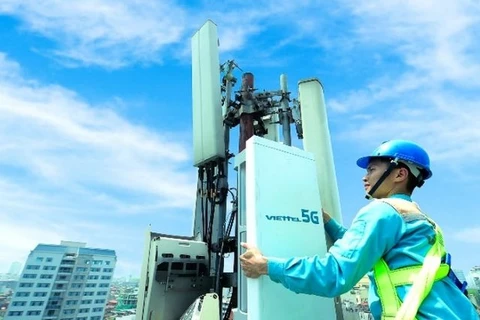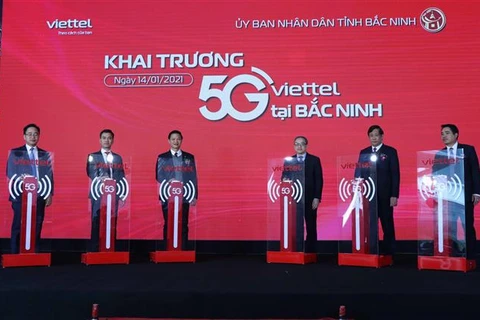Hanoi (VNA) - The Ministry of Information and Communications (MIC) will take proactive steps to develop digital infrastructure, including the rollout of commercial 5G mobile services, which are expected to contribute 7.34 percent to national GDP growth by 2025, Deputy Minister Phan Tam has said.
At the World Mobile Broadband & ICT Summit in Hanoi on March 25, Tam stressed that the experience of developed countries shows that 5G technology and digital infrastructure have brought tremendous benefits to the community.
Particularly in the context of the COVID-19 pandemic, they have an important role in maintaining connectivity while helping ensure the sound operations of economies, he added.
According to Tam, telecommunications infrastructure has been fundamental to the digital economy, digital society, and digital Government.
Digital infrastructure includes broadband infrastructure, IoT, AI, Big Data, cyber security, digital identity, and digital payments, he said, adding that mobile and broadband infrastructure will contribute greatly to the nation’s development.
To this end, digital transformation, IT, and digital technology, among others, have been highlighted in the country’s socio-economic development strategy for the 2021-2030 period and socio-economic development plan during 2021-2025.
Science-technology, innovation, and digital transformation are among the strategic breakthroughs that will help Vietnam become an upper-middle-income country by 2030 and a high-income industrial nation by 2045.
A report from Google, Temasek, and Bain showed that Vietnam’s digital economy reached 14 billion USD in 2020, a year-on-year rise of 16 percent, and will likely reach 52 billion USD in 2025.
A significant number of users tried new digital services, with 41 percent of all digital service consumers being new, making Vietnam the country with the highest rate of internet users in the region.
The Vietnamese Government has viewed digital infrastructure as a pillar of the digital economy. In the last two years, the development of broadband infrastructure has paved the way for other economic sectors to thrive.
By the end of February, Vietnam had more than 17.2 million fixed broadband internet subscribers, while the number of mobile broadband internet subscribers reached nearly 69.5 million.
However, the country needs more innovative ideas to take giant leaps forward to cement the National Digital Transformation Programme to 2025 and vision to 2030.
 5G mobile services are expected to contribute 7.34 percent to national GDP growth by 2025. (Source: VNA)
5G mobile services are expected to contribute 7.34 percent to national GDP growth by 2025. (Source: VNA) 5G services will be piloted on a larger scale and even for Made-in-Vietnam devices, he said.
Vietnam has paid special attention to applying the technology into high-tech agriculture and industry, as well as the Fourth Industrial Revolution, Lai added./.
VNA
























